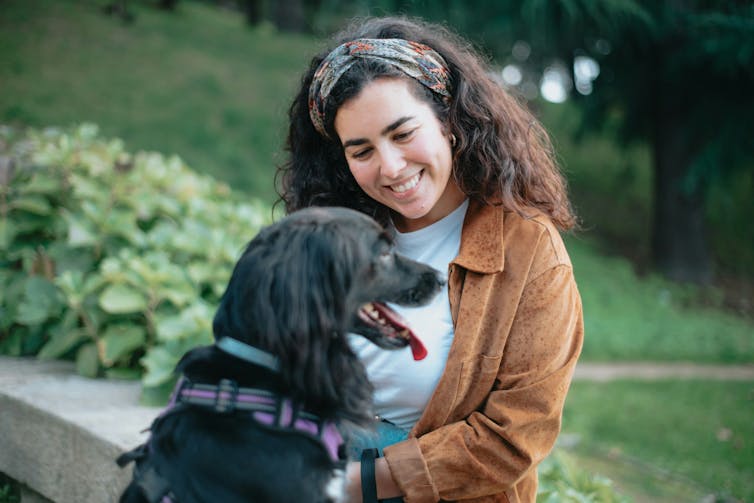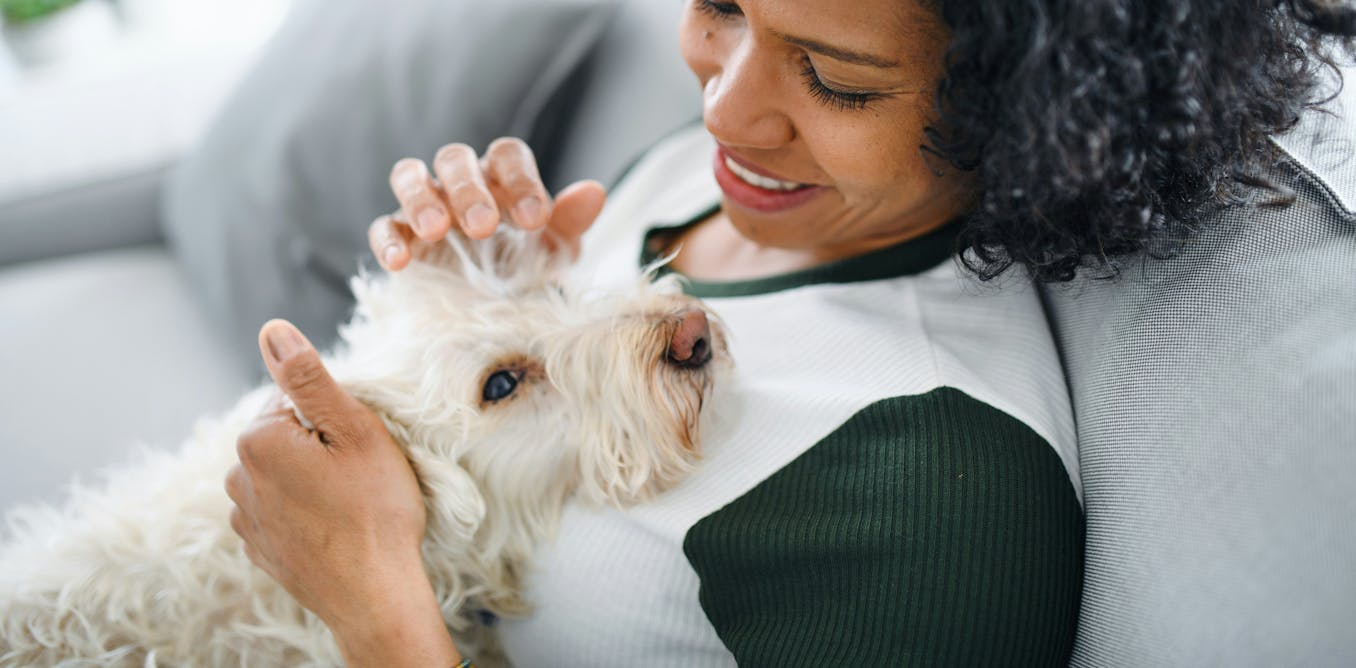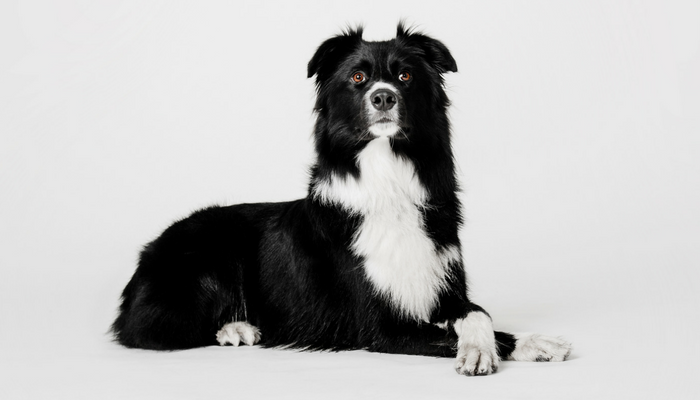From getting extra cuddles to vigilant protection, many expectant parents claim their dogs behave differently during pregnancy — sometimes even before the person knew they were pregnant themselves.
Dogs have shared our lives for around 35,000 years, and in that time, they’ve become remarkably attuned to us, picking up on our behaviour, communication, emotions and even our mental and physical health.
Pregnancy, meanwhile, brings about all sorts of physical, emotional and lifestyle changes. For dogs, that might mean fewer walks or play sessions, shifts in their owner’s mood or scent and even changes to the home environment. It’s no wonder, then, that dogs might respond to a pregnancy with changes in their own behaviour.
But how common are these reports? And what kinds of behaviour changes do owners actually notice? Are there any factors that seem to be related to whether dog owners report that their dogs’ behaviour changed when the owner became pregnant?
As a researcher in the field of dog behaviour and human-animal interactions, I wanted to explore this phenomenon further to help us understand how attuned dogs may be to the people they live with, and the depth of the human-animal bond. So my research team and I were the first to systematically document this phenomenon.
(Unsplash+/Getty Images)
Surveying dog owners
We surveyed 130 people who owned a dog while pregnant with questions about their pregnancy, their dogs’ behaviour and their relationship with their dog.
More specifically, we first asked participants about their dogs’ behaviour before they became pregnant. We presented them with five behaviour categories: attention seeking, guarding with familiar people, guarding with unfamiliar people, fear/anxiety towards the owner and fear/anxiety towards other dogs.
Each category contained a list of behaviours that characterized that category, and we asked participants to select any behaviours their dog typically displayed within that category. For example, the attention seeking category contained behaviours like “”cuddling you” and “sniffing you,” whereas the guarding around familiar people category contained behaviours like “moving between you and a familiar person” and “growling at a familiar person.”
Then, we asked participants if they believed that their dogs’ behaviour changed during their pregnancy. If they answered yes, we asked them if they believed their dogs’ behaviour changed before they were aware they were pregnant. We then presented them with the same five categories of behaviours described above and asked them to select those behaviours they believe their dog displayed during their pregnancy.

(Epic Tails Canine Adventures Photography), Author provided (no reuse)
What we found
Nearly two-thirds (64.5 per cent) of our participants reported that their dogs’ behaviour changed when they became pregnant. A further 26.9 per cent of participants reported that they believed their dogs’ behaviour changed before they were aware that they were pregnant.
When we compared owners’ reports of their dogs behaviour during pregnancy compared to before pregnancy, four out of the five categories of behaviours showed significant increases during pregnancy: attention seeking, guarding with familiar people, guarding with unfamiliar people and fear/anxiety towards other dogs.
Attention seeking had the greatest increase, with 67.1 per cent of participants reporting more attention-seeking behaviours during pregnancy compared to before pregnancy.
When we analyzed whether pregnancy variables or dogs’ behaviour before pregnancy could help predict which dogs’ behaviour would change later, we found that owners who described their dogs as more protective around unfamiliar people before pregnancy were also more likely to report changes in their dogs’ behaviour during pregnancy.
Conversely, participants who reported that their dogs showed more fear/anxiety towards other dogs were less likely to report that their dogs’ behaviour changed during pregnancy.

(Unsplash+/A.C.)
Why it matters
This study was the first to systematically show that many dog owners believe their dogs’ behaviour changes during pregnancy. While our findings rely on owners’ perceptions, and we know people aren’t always spot-on when interpreting their dogs’ behaviour, these insights are still valuable. They help reveal whether this is a common enough experience to explore further, and they remind us that what owners believe about their dogs can shape how they care for them.
Understanding which behaviours are most often reported can also help expectant owners better prepare both themselves and their dogs for the transition ahead. That might mean keeping to a predictable walk schedule (with a little help from friends or family), setting up calm retreat spaces and rewarding relaxed behaviour.
Pregnancy dramatically changes the lives of expectant parents, and many dog owners see their dogs change with it. Understanding what dog owners notice about their dogs’ behaviour can help families support themselves and their dogs through this transition, strengthening the bond that has evolved over thousands of years.

The post “Do dogs behave differently during an owner’s pregnancy? Many dog owners think so” by Catherine Reeve, Post doctoral fellow, Mount Saint Vincent University was published on 10/19/2025 by theconversation.com






































Leave a Reply